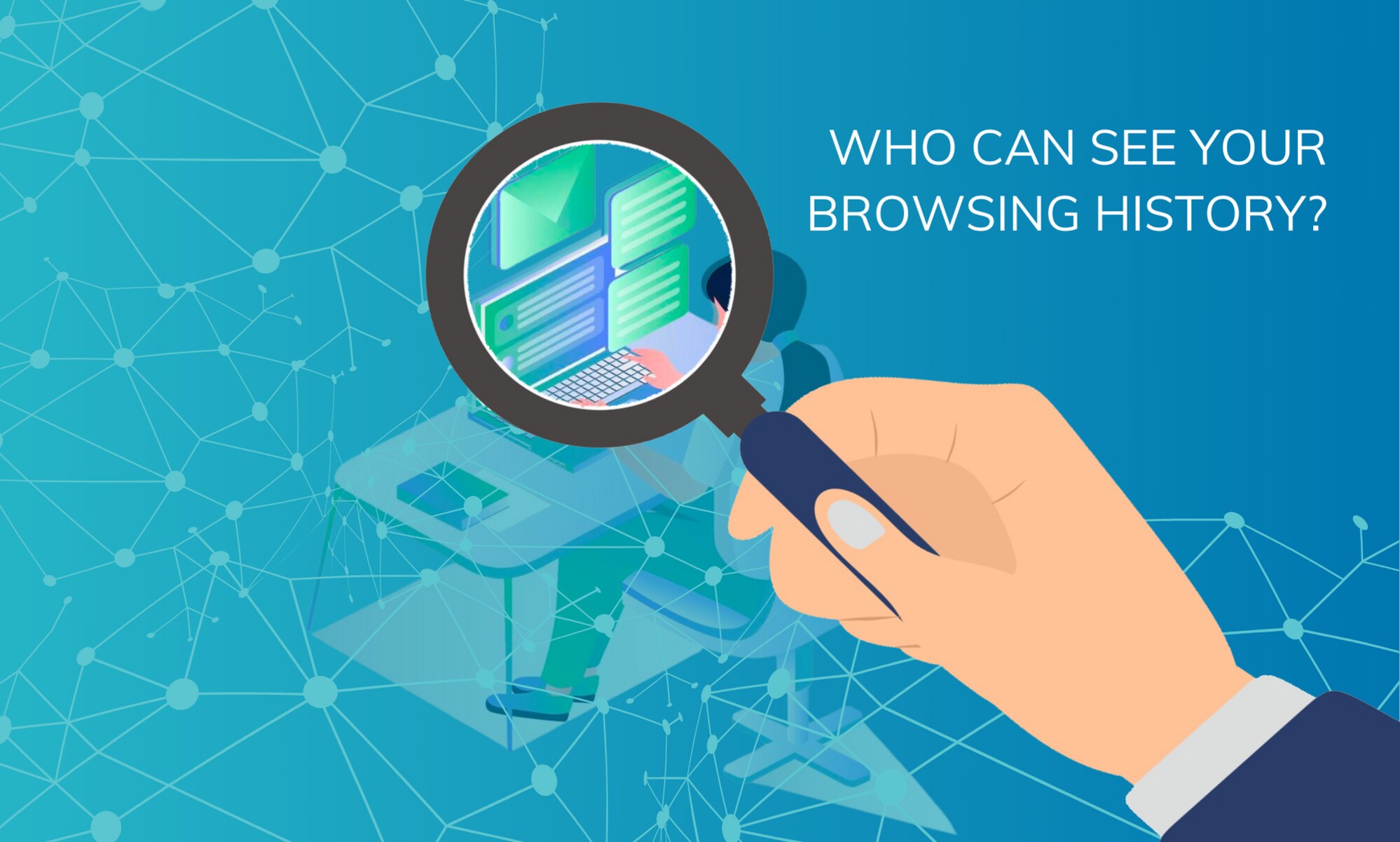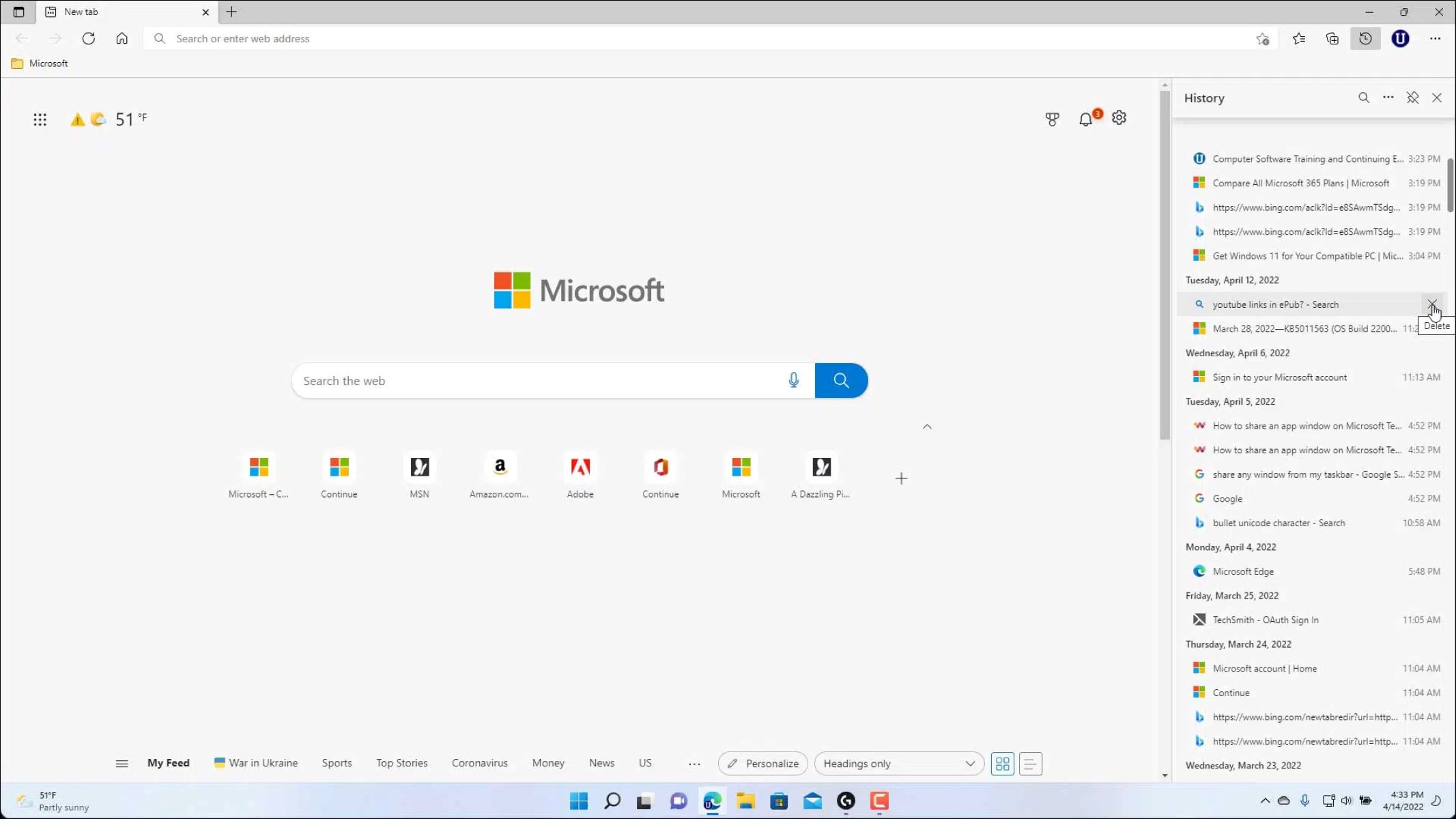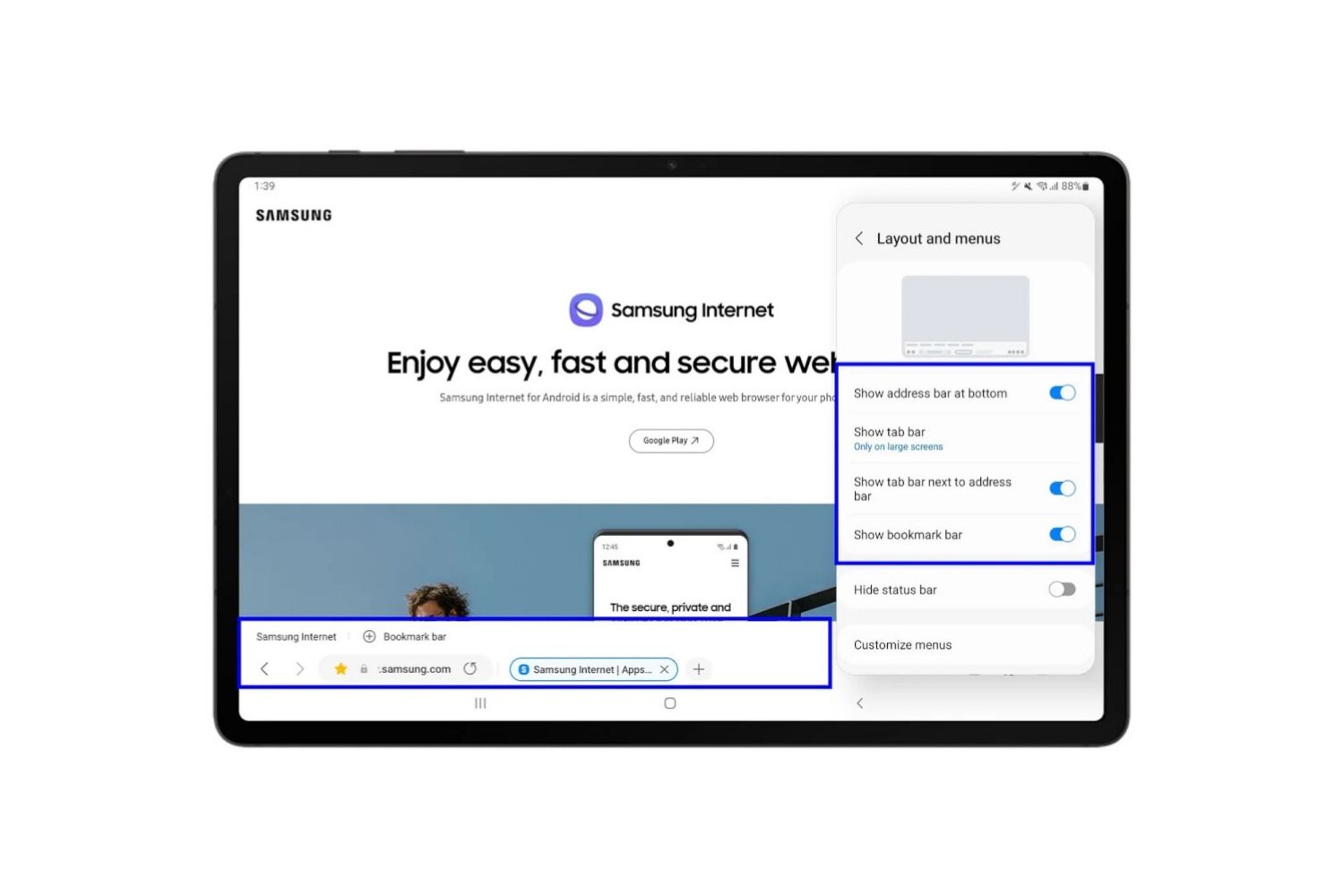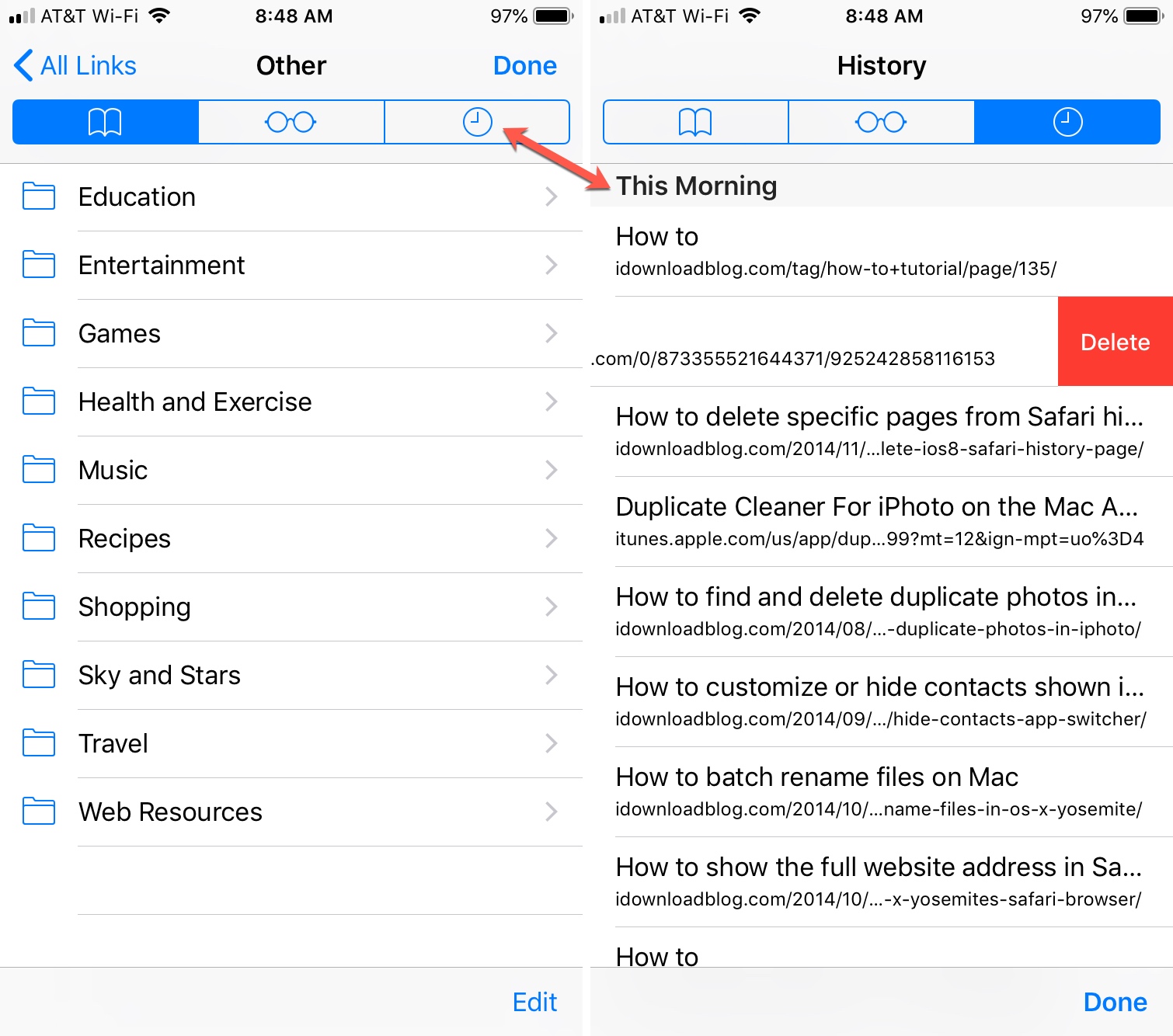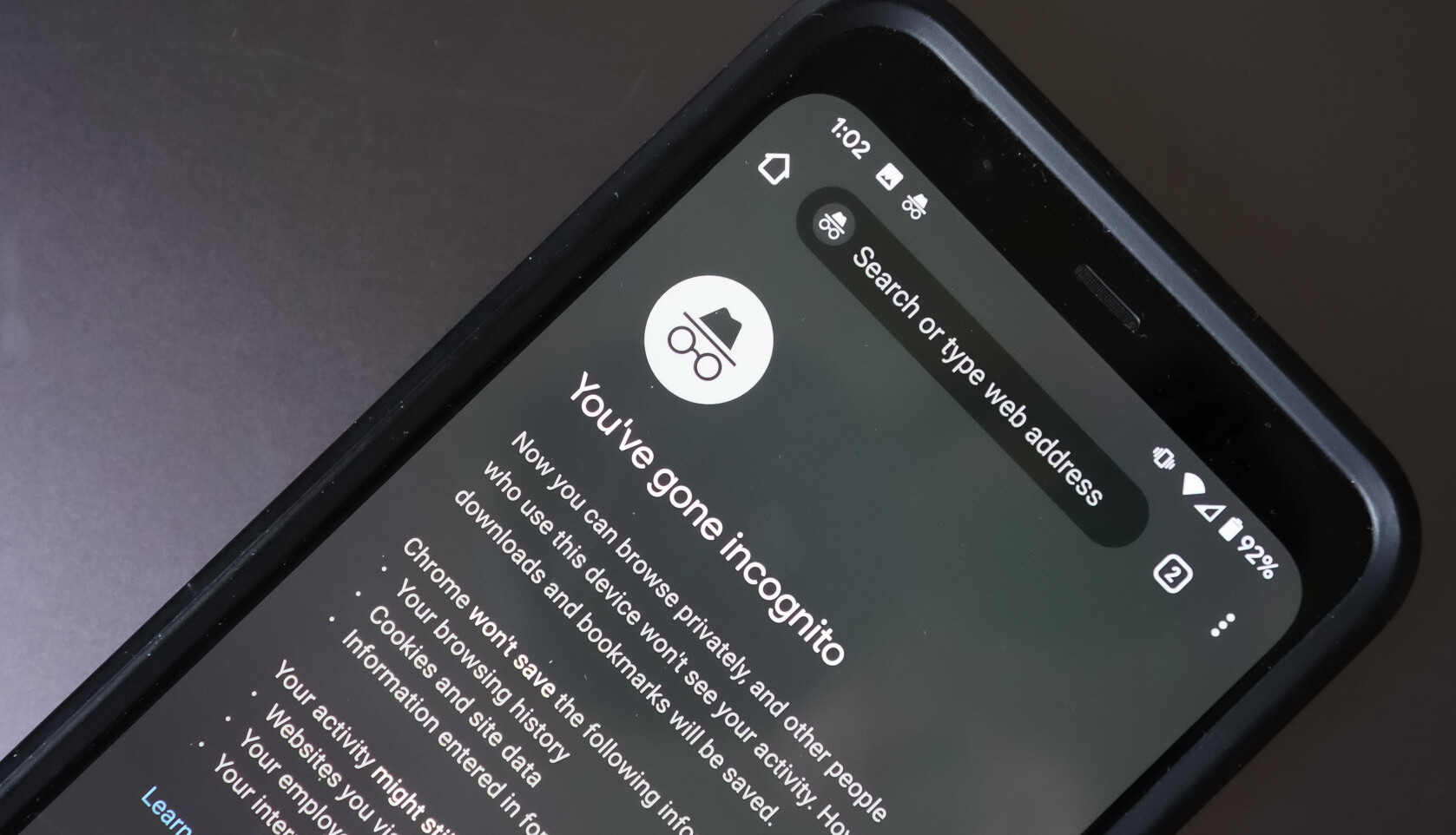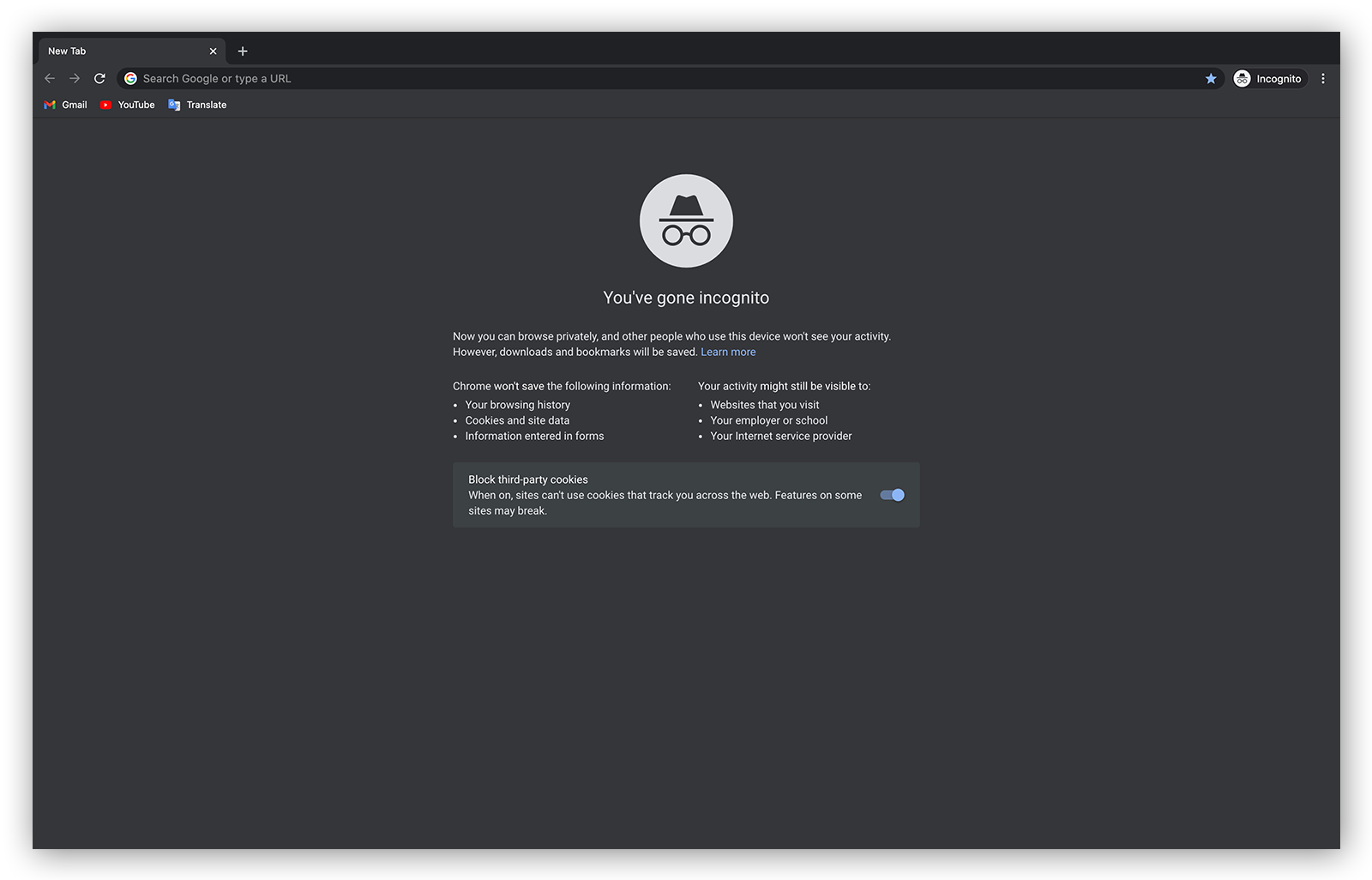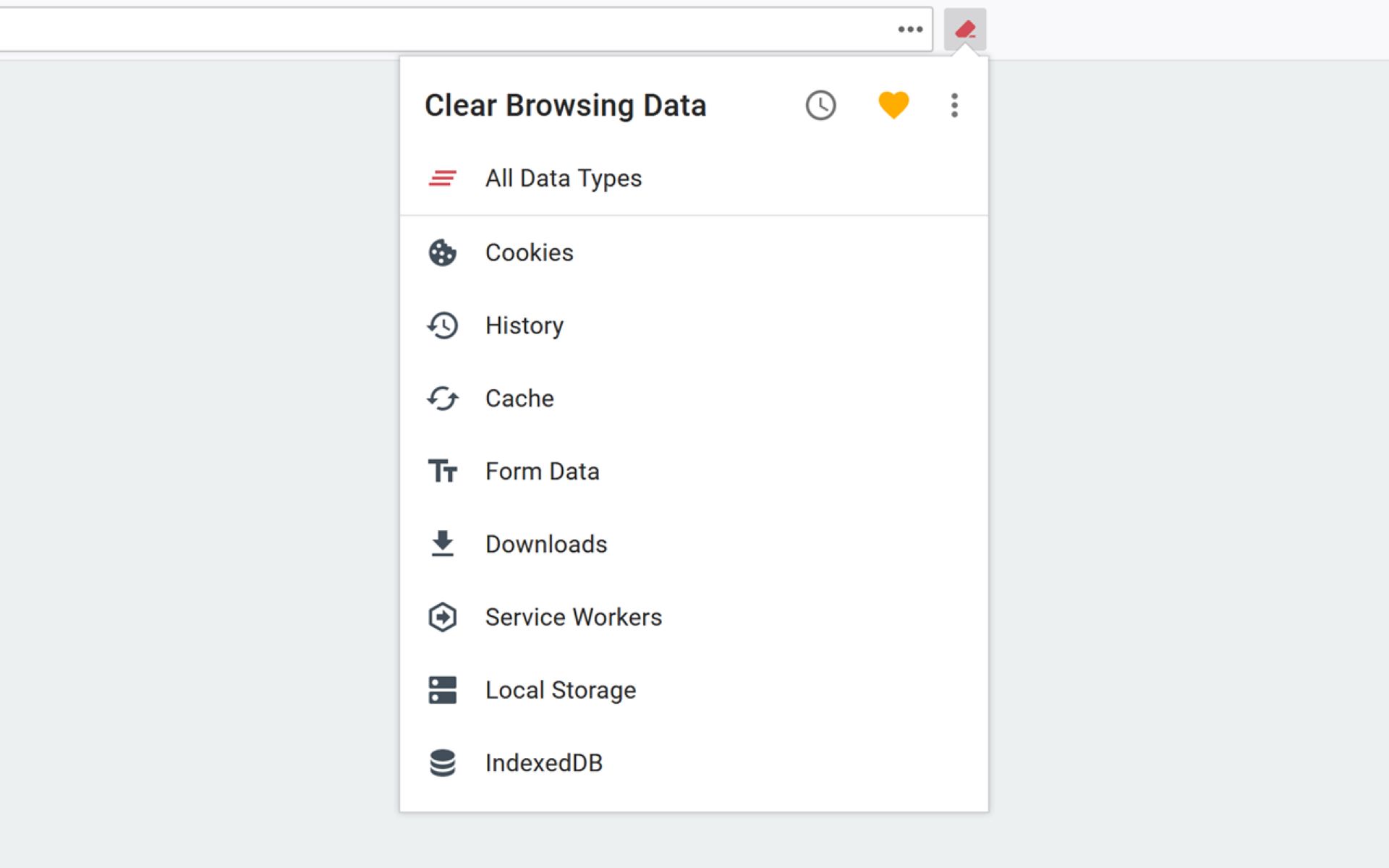Introduction
Your browsing history is a digital footprint of your online activities, encompassing the websites you visit, the searches you conduct, and the content you engage with. It's natural to wonder who can access this treasure trove of information. Understanding the entities that may have visibility into your browsing history is crucial for safeguarding your privacy and security in the digital realm.
As you traverse the vast expanse of the internet, various entities may have the potential to intercept and scrutinize your browsing history. From internet service providers to government agencies, and even your own family members or roommates, the list of potential observers is extensive. Delving into the intricacies of each entity's capacity to access your browsing history can empower you to make informed decisions about your online activities and privacy measures.
Let's embark on a journey to explore the different entities that might have the ability to see your browser history, shedding light on the mechanisms and implications of their potential access. Understanding these dynamics will equip you with the knowledge needed to navigate the digital landscape with confidence and awareness.
Internet Service Providers
Internet service providers (ISPs) play a pivotal role in facilitating your online endeavors by serving as the gateway between your devices and the vast expanse of the internet. As you traverse the digital realm, your ISP acts as the conduit through which your online activities flow. This unique position affords ISPs the capability to monitor and access your browsing history.
When you access the internet through your ISP, all the data exchanged between your device and the websites you visit passes through their network. This includes the URLs of the websites you access, the duration of your visits, and the content you interact with. While this data is typically considered private, ISPs have the technical means to intercept and log this information.
In many cases, ISPs are legally permitted to monitor and track their users' online activities. This is often outlined in the terms of service or privacy policies that users agree to when signing up for internet services. Additionally, in some regions, ISPs are required by law to retain user data for a certain period, further solidifying their ability to access and store browsing history.
The implications of ISPs having visibility into your browsing history are far-reaching. On one hand, this access enables ISPs to optimize network performance, troubleshoot connectivity issues, and implement security measures. However, it also raises concerns about privacy and data security. The potential for ISPs to monetize user data or disclose browsing history to third parties underscores the need for users to be mindful of their online activities and take proactive measures to protect their privacy.
To mitigate the exposure of your browsing history to ISPs, utilizing virtual private networks (VPNs) can serve as a safeguard. VPNs encrypt your internet traffic, shielding it from prying eyes, including ISPs. By routing your online activities through a VPN, you can bolster the confidentiality of your browsing history and reduce the likelihood of ISPs intercepting and scrutinizing your digital footprint.
Understanding the role of ISPs in potentially accessing your browsing history empowers you to make informed decisions about your online privacy. By leveraging this knowledge and implementing privacy-enhancing tools and practices, you can navigate the digital landscape with heightened awareness and confidence.
Employers
In the realm of professional environments, the question of whether employers can access their employees' browsing history often arises. The dynamics of this scenario are multifaceted, encompassing considerations of workplace policies, network monitoring tools, and legal implications.
Employers, especially in corporate settings, have the technical capability to monitor and access employees' browsing history within the confines of the workplace network. This access is typically facilitated through the implementation of network monitoring tools and software, which allow employers to track the online activities of their employees while they are connected to the company's network.
The rationale behind employers monitoring browsing history is rooted in concerns related to productivity, security, and compliance. By monitoring internet usage, employers can identify potential productivity drains, mitigate security risks stemming from unauthorized or risky online activities, and ensure compliance with company policies and regulatory requirements.
In some cases, employees may be explicitly informed about the monitoring of their online activities through the organization's acceptable use policies or employment contracts. These documents often outline the extent of monitoring, the purposes for which it is conducted, and the potential consequences of violating the established guidelines.
The legal aspects of employers accessing browsing history are contingent upon jurisdictional regulations and the specific circumstances surrounding the monitoring. In regions where privacy laws are robust, employers may be required to adhere to stringent guidelines when monitoring employees' online activities. This may involve obtaining explicit consent from employees or demonstrating a legitimate business need for monitoring.
From an employee's perspective, the prospect of employers accessing browsing history underscores the importance of exercising discretion and adhering to workplace policies regarding internet usage. It also emphasizes the need for clear communication between employers and employees regarding the parameters of monitoring and the implications of non-compliance.
In instances where personal devices are used for work-related tasks, such as remote work scenarios, the delineation between personal and professional internet usage becomes more nuanced. Employers may implement measures to monitor work-related activities on personal devices, raising questions about the extent of their visibility into employees' personal browsing history.
Navigating the landscape of employers potentially accessing browsing history involves a delicate balance between organizational prerogatives, employee privacy, and legal considerations. By fostering transparency, establishing clear policies, and upholding respect for employee privacy, employers can navigate the complexities of monitoring browsing history in a manner that aligns with ethical and legal standards.
Understanding the dynamics of employers accessing browsing history empowers both employers and employees to navigate this terrain with awareness and accountability, fostering a harmonious balance between organizational interests and individual privacy.
Government Agencies
The realm of government agencies encompasses a spectrum of entities, ranging from law enforcement and intelligence agencies to regulatory bodies and governmental departments. Within this landscape, the question of whether government agencies can access individuals' browsing history is a topic of significant relevance and complexity.
In certain jurisdictions, government agencies may possess the legal authority to access individuals' browsing history under specific circumstances, often related to law enforcement, national security, or regulatory investigations. This authority is typically governed by laws, regulations, and judicial processes that outline the conditions under which government agencies can obtain access to such sensitive digital records.
The legal frameworks that govern government access to browsing history vary across jurisdictions, reflecting the diverse approaches to balancing individual privacy rights with the imperatives of public safety and national security. In some regions, stringent legal safeguards and oversight mechanisms are in place to regulate and limit government agencies' access to individuals' browsing history, ensuring that such access is warranted, proportionate, and subject to judicial or independent scrutiny.
The advent of digital communication and the internet has prompted ongoing debates and legal battles regarding the scope of government agencies' authority to access individuals' digital records, including browsing history. These debates often revolve around fundamental questions of privacy, civil liberties, and the appropriate boundaries of governmental surveillance in the digital age.
In instances where government agencies seek to access individuals' browsing history, the legal and procedural safeguards in place are designed to uphold due process, prevent arbitrary or unwarranted intrusions into privacy, and safeguard individuals' rights. This often involves the requirement for government agencies to obtain judicial warrants or other forms of legal authorization based on demonstrated probable cause or legitimate investigative needs.
The implications of government agencies accessing individuals' browsing history extend beyond the realm of privacy and civil liberties, encompassing broader societal considerations related to trust in governmental institutions, the balance of power between the state and the individual, and the evolving landscape of digital rights and governance.
Navigating the complexities of government agencies potentially accessing individuals' browsing history necessitates a nuanced understanding of the legal, ethical, and societal dimensions at play. By fostering transparency, upholding legal safeguards, and engaging in informed discourse on the intersection of privacy and governmental authority, societies can strive to strike a balance that respects individual rights while addressing legitimate governmental needs.
Understanding the dynamics of government agencies' potential access to individuals' browsing history empowers individuals, policymakers, and advocacy groups to engage in constructive dialogue and advocacy aimed at safeguarding privacy, promoting accountability, and upholding the principles of democratic governance in the digital age.
Website and App Developers
Website and app developers hold a unique vantage point in the digital ecosystem, as their creations serve as gateways to users' online experiences. Within this context, the question of whether website and app developers can access individuals' browsing history warrants exploration.
From a technical standpoint, website and app developers have the capability to track users' browsing activities within the confines of their platforms. This tracking often takes the form of cookies, tracking pixels, and other mechanisms that enable the collection of user data, including browsing history. By leveraging these tools, developers can gain insights into users' interactions with their websites or applications, including the specific pages visited, the duration of visits, and the actions performed.
The collection of browsing history data serves various purposes for website and app developers. It enables them to analyze user behavior, personalize content and experiences, and optimize the functionality of their platforms. Additionally, browsing history data can inform targeted advertising, content recommendations, and user engagement strategies, contributing to the monetization and enhancement of digital offerings.
While the tracking of browsing history by website and app developers can yield benefits in terms of user experience and business objectives, it raises pertinent considerations regarding user privacy and data protection. Users may be unaware of the extent to which their browsing history is being tracked and utilized, prompting concerns about transparency, consent, and the potential for data misuse.
In response to these concerns, regulatory frameworks such as the General Data Protection Regulation (GDPR) in the European Union and the California Consumer Privacy Act (CCPA) in the United States have imposed stringent requirements on website and app developers regarding the collection and processing of user data, including browsing history. These regulations mandate transparent disclosures, explicit user consent, and robust data protection measures, empowering users to exert control over their digital footprints.
Navigating the landscape of website and app developers potentially accessing individuals' browsing history necessitates a balanced approach that upholds user privacy while acknowledging the legitimate needs of developers to enhance their offerings and sustain their digital endeavors. By embracing principles of transparency, user empowerment, and ethical data practices, website and app developers can foster trust, accountability, and sustainable digital ecosystems.
Understanding the dynamics of website and app developers' potential access to individuals' browsing history empowers users to make informed choices about their digital interactions, while encouraging developers to prioritize privacy, consent, and responsible data stewardship in their pursuit of innovation and user engagement.
Family Members or Roommates
In the intimate sphere of familial and communal living, the dynamics of privacy and personal boundaries intersect with the digital realm, giving rise to considerations regarding the potential access of family members or roommates to individuals' browsing history. Within the confines of shared living spaces, the question of whether family members or roommates can access one's browsing history evokes a nuanced exploration of trust, boundaries, and the implications of digital transparency within interpersonal relationships.
In scenarios where individuals share devices or network connections with family members or roommates, the potential for inadvertent or intentional access to browsing history becomes a pertinent consideration. Shared devices, such as family computers or communal tablets, may serve as conduits for unintentional exposure of browsing history, especially in instances where multiple users access the same accounts or browsers. Additionally, shared network connections within households or shared living spaces can enable the visibility of network traffic, potentially encompassing browsing history, to individuals with technical acumen or access to network monitoring tools.
The implications of family members or roommates accessing one's browsing history extend beyond the technical realm, delving into the intricacies of trust, respect for privacy, and the negotiation of boundaries within interpersonal relationships. In familial contexts, the access to browsing history may prompt discussions about digital literacy, consent, and the importance of respecting each other's online activities. Similarly, in shared living arrangements with roommates, considerations of mutual respect, communication, and the establishment of clear guidelines for digital privacy may come to the forefront.
Navigating the landscape of family members or roommates potentially accessing one's browsing history involves fostering open dialogue, setting clear expectations, and cultivating a culture of mutual respect for digital privacy within shared living spaces. By engaging in conversations about digital boundaries, consent, and the responsible use of shared devices and networks, individuals can establish a framework that upholds privacy while nurturing harmonious relationships within the domestic or communal environment.
Understanding the dynamics of family members or roommates' potential access to individuals' browsing history empowers individuals to navigate shared living spaces with mindfulness, empathy, and a proactive approach to digital privacy. By fostering a culture of respect for personal boundaries and digital autonomy, individuals can cultivate a harmonious coexistence that integrates the nuances of digital transparency within the fabric of familial and communal relationships.
Hackers and Cybercriminals
In the ever-evolving landscape of cybersecurity, the specter of hackers and cybercriminals looms as a pervasive threat to individuals' digital privacy and security. These nefarious actors leverage a myriad of techniques and tools to gain unauthorized access to sensitive information, including individuals' browsing history, with the intent of exploitation, extortion, or illicit gain.
Hackers and cybercriminals employ a diverse array of tactics to infiltrate and compromise individuals' browsing history. These tactics encompass phishing attacks, malware distribution, and the exploitation of software vulnerabilities to gain access to devices and networks. Once infiltrated, these malicious actors can intercept and exfiltrate browsing history data, potentially exposing individuals to privacy breaches, identity theft, and targeted exploitation.
The implications of hackers and cybercriminals accessing individuals' browsing history are profound, encompassing not only the compromise of personal privacy but also the potential for financial loss, reputational damage, and psychological distress. By gaining visibility into browsing history, hackers and cybercriminals can glean insights into individuals' online behaviors, preferences, and potentially sensitive activities, laying the groundwork for targeted attacks, fraud, or the manipulation of personal data for malicious ends.
Mitigating the risks posed by hackers and cybercriminals requires a multi-faceted approach that integrates robust cybersecurity measures, user education, and proactive vigilance. Implementing strong, regularly updated security software, exercising caution when interacting with online content, and adhering to best practices for password management and device security can fortify defenses against unauthorized access to browsing history by malicious actors.
Furthermore, fostering digital literacy and awareness about the tactics employed by hackers and cybercriminals can empower individuals to recognize and thwart potential threats to their browsing history and overall digital security. By staying informed about emerging cyber threats, practicing skepticism towards unsolicited communications, and cultivating a security-conscious mindset, individuals can bolster their resilience against the incursions of hackers and cybercriminals.
Understanding the tactics and motivations of hackers and cybercriminals in accessing individuals' browsing history equips individuals with the knowledge needed to fortify their digital defenses and navigate the online landscape with heightened vigilance and resilience. By embracing a proactive stance towards cybersecurity and remaining attuned to evolving threats, individuals can safeguard their browsing history and digital well-being from the pernicious designs of malicious actors.
Conclusion
The exploration of the entities that may have the potential to access individuals' browsing history unveils a complex tapestry of digital dynamics, privacy considerations, and security imperatives. From internet service providers and employers to government agencies, website and app developers, family members or roommates, and the looming specter of hackers and cybercriminals, the landscape of potential observers of browsing history is multifaceted and rife with implications.
At the heart of this exploration lies the fundamental imperative of safeguarding digital privacy and security. The awareness of the entities that may have visibility into browsing history serves as a catalyst for informed decision-making, proactive measures, and the cultivation of a digital environment that upholds individual rights and autonomy.
Empowerment through knowledge emerges as a central theme, as individuals, organizations, and policymakers navigate the complexities of digital transparency and privacy. By understanding the capabilities and potential access points of entities such as internet service providers and employers, individuals can make informed choices about their online activities, implement privacy-enhancing tools, and advocate for transparent and ethical practices in the digital realm.
The interplay of legal, ethical, and societal dimensions underscores the need for ongoing dialogue and advocacy aimed at striking a balance between the imperatives of security, regulatory compliance, and individual privacy rights. From the regulatory frameworks that govern data protection to the evolving landscape of cybersecurity best practices, the quest to safeguard browsing history is a dynamic and evolving endeavor that necessitates collaboration, innovation, and a steadfast commitment to digital well-being.
As individuals traverse the digital landscape, the principles of transparency, consent, and responsible data stewardship emerge as guiding beacons, illuminating pathways towards a digital ecosystem that respects and protects browsing history as a cornerstone of individual privacy. By fostering a culture of digital literacy, accountability, and ethical conduct, stakeholders across the digital spectrum can contribute to a landscape where browsing history is shielded from unwarranted access, and where individuals can engage with the online world with confidence and autonomy.
In this era of digital interconnectedness, the journey towards safeguarding browsing history is a collective endeavor, underpinned by the principles of respect, empowerment, and the recognition of the intrinsic value of digital privacy. By embracing these principles, individuals and organizations can forge a digital landscape where browsing history is a sanctuary of privacy, resilience, and empowerment.







